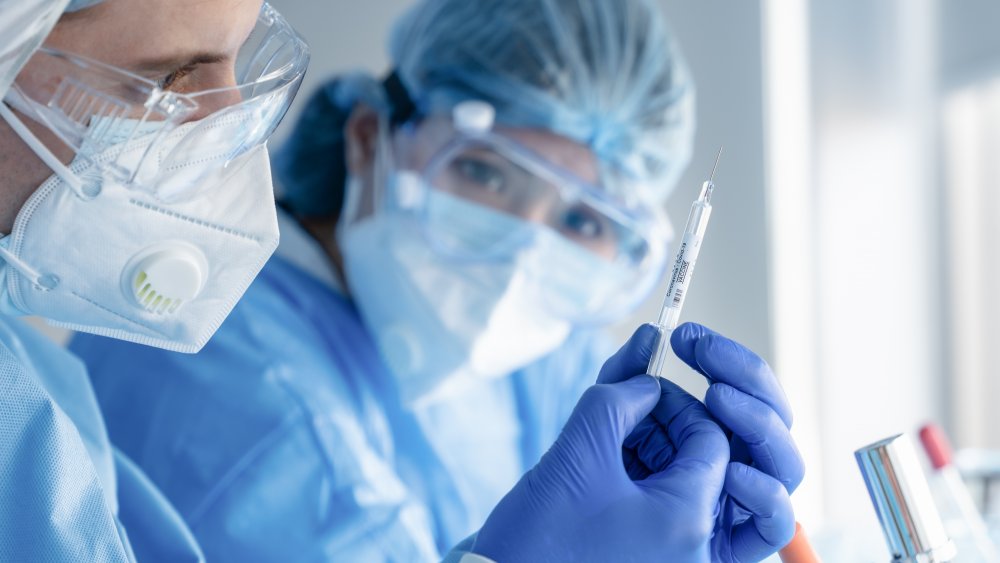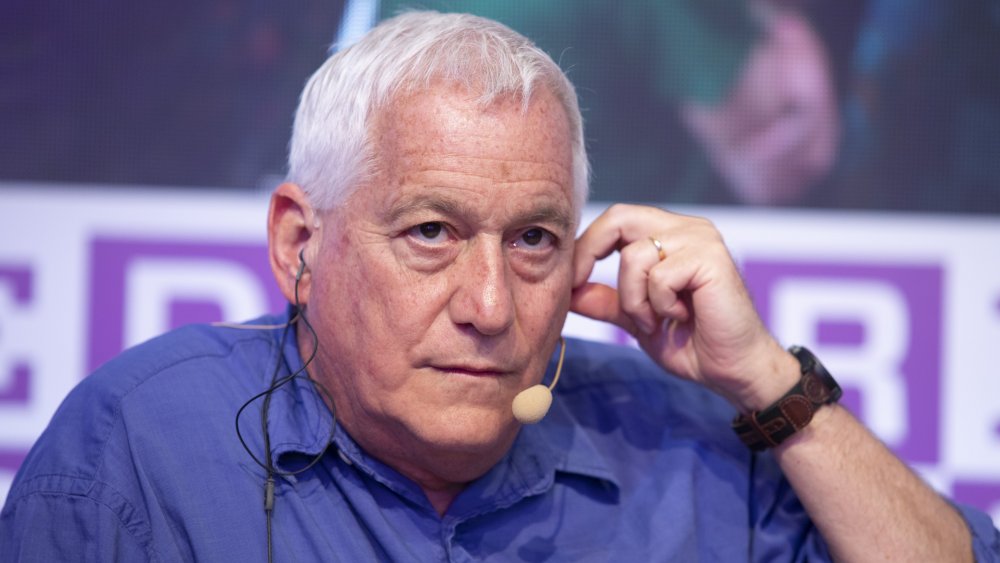This Is What Pfizer's COVID-19 Vaccine Trial Was Really Like
Ever since the start of the COVID-19 pandemic, everyone has been wondering when we'd have a vaccine to protect us. As we're all well aware by now, we can't have nice things (baseball games, fairs, festivals, etc.) as long as there's the possibility that any or all of us could be walking around shedding contagion wherever we go. (No matter how often you're tested, being virus-free on Monday is no guarantee you'll remain so on Tuesday.)
Well, Big Pharma, while it's seldom painted as the "good guy" in any narrative about the state of modern medicine, is actually out there at the forefront of this national crisis. Not for entirely altruistic reasons, since they doubtless stand to earn a fair few bazillions once they come up with the Great Pandemic Preventative, even if the Department of Health and Human Services assures us the vaccine will be distributed free of charge. No matter its source, though, we're all waiting and hoping for the day the vaccine is readily available.
As of the latest press release from drug company Pfizer, we may not be waiting too much longer, since the vaccine they're trialing showed 90-plus percent effectiveness in its first "interim efficacy analysis" — this is good news indeed, but keep in mind that this first bit of analysis covered only around 100 participants, according to Stat. Also, there isn't any information — yet — about if this vaccine prevents severe coronavirus disease or asymptomatic cases. However, the news is promising and may be a step in the right direction.
As far as those trials go, we do have access to some insider information. Newsman Walter Isaacson, former chairman of CNN, editor of Time magazine, and author of Steve Jobs' posthumous biography, spoke with CNBC about his experience as a coronavirus vaccine guinea pig.
How a test subject describes his experience
As Isaacson told CNBC, he first applied online to participate in the vaccine trial, and was shortly thereafter contacted and sent to a hospital in Louisiana. (He didn't reveal whether transportation was provided, or whether there was a choice of venues.) He there received a shot, although he was never informed as to whether it was the actual vaccine or a placebo. He said he was also instructed to look away from the doctor when receiving the injection, presumably so he wouldn't be able to make an educated guess.
Isaacson reports no adverse reaction whatsoever to... whatever it was he was injected with. He's kept a vaccine diary which is sent to Pfizer every few days but evidently hasn't had much to report. He does say, though, that should the vaccine be approved, at that point he'll be told whether he got the real deal or not, and will be offered the vaccine if he received the placebo.
At this point, however, Isaacson can't say for sure how the vaccine made him feel since he does not know whether he's experienced it. He did say, though, that going into the trial he had "zero worry," and that now that initial reports on the vaccine are positive, he says: "I feel great. And I feel really great for the country and the world and for Pfizer." Let's just hope the rest of us feel great, too, when and if we ever get vaccinated ourselves.


